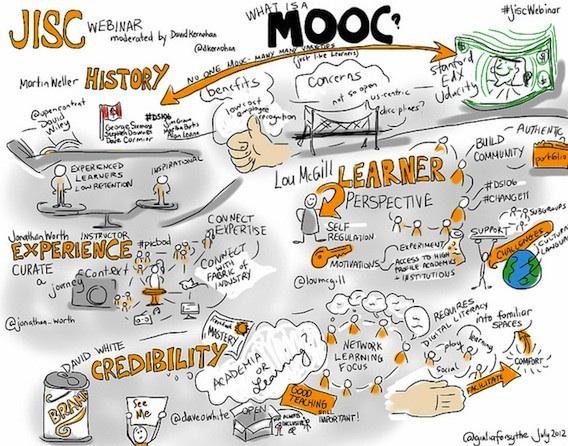Unlocking Lifelong Learning: The Transformative Role of MOOCs in Continuing Education
In today’s rapidly evolving world, the necessity for ongoing professional and personal development has never been greater. Massive Open Online courses (MOOCs) have emerged as a game-changer, making lifelong learning accessible to people of all backgrounds and ages. Whether you’re aiming to advance yoru career, explore new domains, or enhance your skill set, MOOCs offer flexible, affordable, and high-quality learning experiences. In this article, we delve into how MOOCs are transforming continuing education and empowering individuals to stay ahead in an ever-competitive landscape.
What Are moocs and How Do Thay work?
MOOCs – Massive Open Online Courses – are online courses designed to offer virtually unlimited participation and open access via the web.Powered by leading universities, organizations, and subject matter experts, MOOCs leverage technology to create engaging and interactive learning environments. Popular platforms like Coursera, edX,Udemy, and FutureLearn provide thousands of diverse courses ranging from computer science to humanities, business, health, and personal development.
- Accessible Worldwide: No geographic restrictions, open to anyone with internet access
- Flexible Scheduling: Study at your own pace—often on your own schedule
- Diverse Topics: Courses available in tech, business, arts, science, and more
- Certificates & Credentials: Many MOOCs offer completion certificates, micro-credentials, or even accredited degrees
“MOOCs have democratized education, making world-class learning resources available to anyone, anywhere, at any time.”
the Transformative Role of MOOCs in Continuing education
Continuing education is essential for professionals who wish to maintain their competitive edge,adapt to industry changes,or pivot to new career paths. MOOCs in continuing education serve as a cost-effective, flexible, and high-impact solution, breaking down traditional barriers to lifelong learning.
Key Benefits of MOOCs for Lifelong Learners
- Accessibility & Inclusion: MOOCs cater to learners from diverse backgrounds, including those in underserved communities or those with physical limitations.
- Affordability: many MOOCs are free, or cost only a fraction of traditional courses, making them accessible to most people.
- Customization & Personalization: Learners can design their own educational journey by selecting only the modules or topics they need.
- Industry-Relevant Skills: Many courses are developed in collaboration with industry leaders, ensuring that curricula stay current and practical.
- Networking & Collaboration: Discussion forums and project work foster community and allow for valuable professional networking.
- Up-to-Date Content: Courses are frequently updated to reflect the latest in research, technology, and industry practices.
How MOOCs Facilitate Lifelong Learning
The shift towards a knowledge-driven economy has amplified the need for continuous reskilling and upskilling. MOOCs address this need through a variety of innovative features:
- Self-Paced Learning: Adults balancing work, family, and other commitments can progress at their own speed.
- Peer-to-Peer Interaction: Community forums, group assignments, and feedback loops enhance the learning process.
- Real-World Application: Project-based tasks and case studies provide hands-on experience and problem-solving skills.
- Microlearning: Short, focused modules make it easier to fit learning into busy schedules.
Case Studies: Real-Life Impact of MOOCs on Professional growth
The impact of MOOCs on continuing education and career advancement is evident through numerous success stories:
Case Study #1: Upskilling in Data Science
Maria, an accountant, wanted to pivot into data analytics. by completing a series of MOOCs on Coursera, she gained relevant python and data visualization skills. Armed with her new knowledge and certificate, Maria landed a job as a junior data analyst, starting a successful new chapter in her career.
Case Study #2: Teachers Adopting Digital Tools
A group of educators at a rural high school enrolled in edX’s “Blended Learning Essentials.” With moocs, they not only mastered online teaching methodologies but also improved student engagement outcomes during the pandemic.
Case Study #3: Lifelong Learning for Retirees
After retirement, James discovered MOOCs on topics such as photography, history, and nutrition, enabling him to nourish his curiosity and social connections without constraints of age or physical mobility.
Practical Tips for Maximizing Your MOOC Experience
- Set Clear goals: Define what you want to achieve—career advancement, skill acquisition, or personal enrichment.
- Create a Study Routine: Dedicate specific times each week to coursework to build momentum and stay on track.
- Engage with the Community: Participate in forums, peer reviews, and group projects to deepen learning and expand your network.
- Apply What You Learn: Integrate new skills into your job or portfolio instantly to reinforce understanding.
- Earn Certificates: Showcase your achievements on your LinkedIn profile or resume for greater professional visibility.
- Stay Curious: The MOOC landscape is vast—explore interdisciplinary courses to enrich your perspective.
First-Hand Experiences: Voices from Lifelong Learners
“Enrolling in MOOCs helped me bridge the gap between my existing skills and the demands of the tech industry. The versatility fit perfectly with my full-time job, and the projects I completed made a real difference in my interviews.”
— Raj, Software developer
“Learning through MOOCs reignited my passion for teaching and allowed me to connect with peers worldwide. It’s an experience I highly recommend to educators of all ages.”
— Lisa, High School Teacher
The Future of MOOCs in Continuing Education
As technology advances and the global job market evolves, the importance of MOOCs in lifelong learning will only grow. We can expect further integration of artificial intelligence, virtual reality, and adaptive learning paths for a more immersive and personalized experience.
- Expanded Partnerships: Increased collaboration between MOOC providers, universities, and employers.
- Stackable Credentials: Microdegrees, nanodegrees, and professional certificates that can be accumulated towards formal qualifications.
- Greater Recognition: More employers are recognizing MOOC certificates as a testament to skills and commitment to learning.
Conclusion: Embrace the Power of MOOCs for Lifelong Learning
MOOCs have revolutionized continuing education by making learning truly lifelong, borderless, and democratized. With high-quality content, flexible schedules, and affordable options, learners from all walks of life can unlock new opportunities and passions. As you embark on your own lifelong learning journey, remember that the world’s knowledge is just a click away—start exploring MOOCs today and take control of your personal and professional growth.

